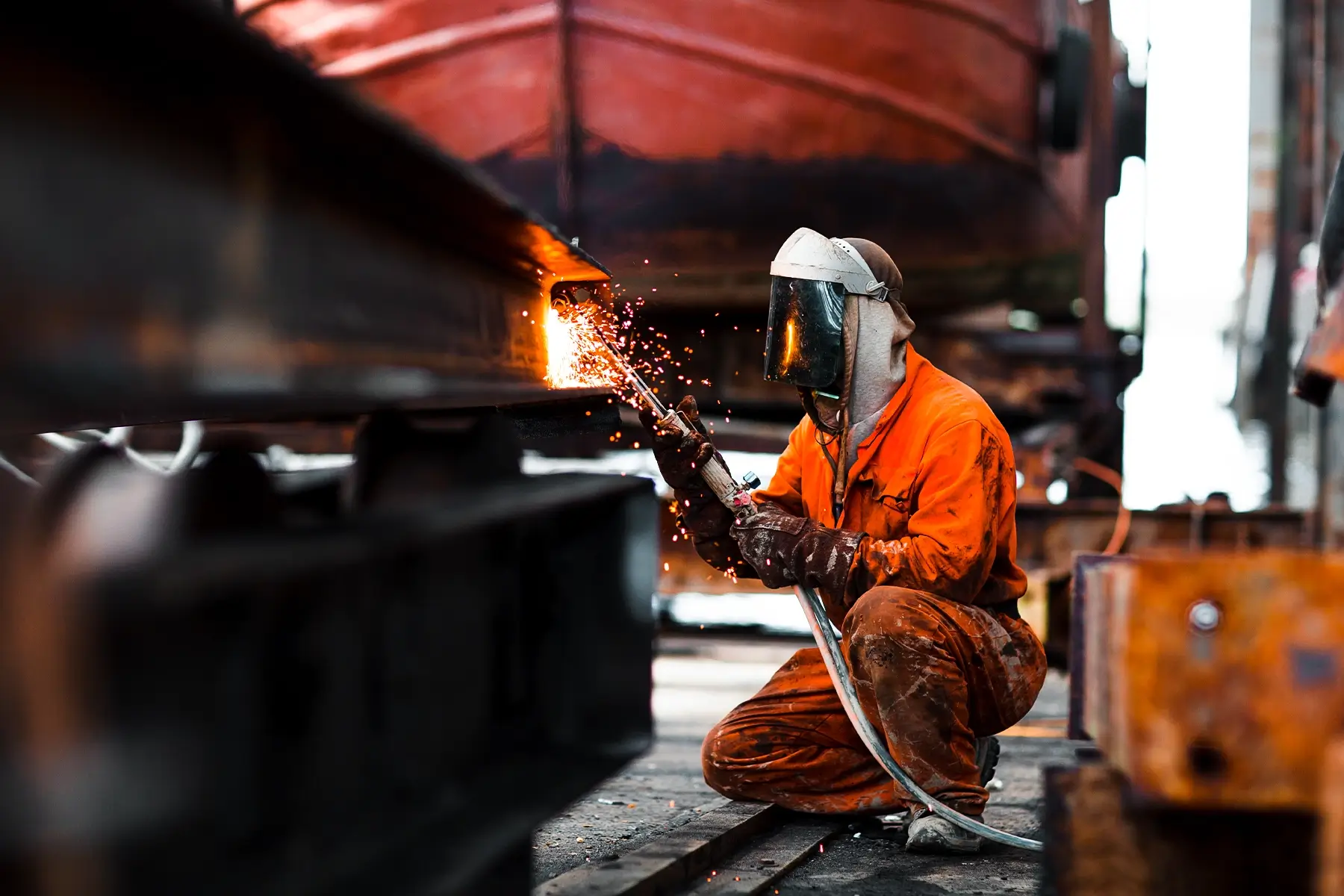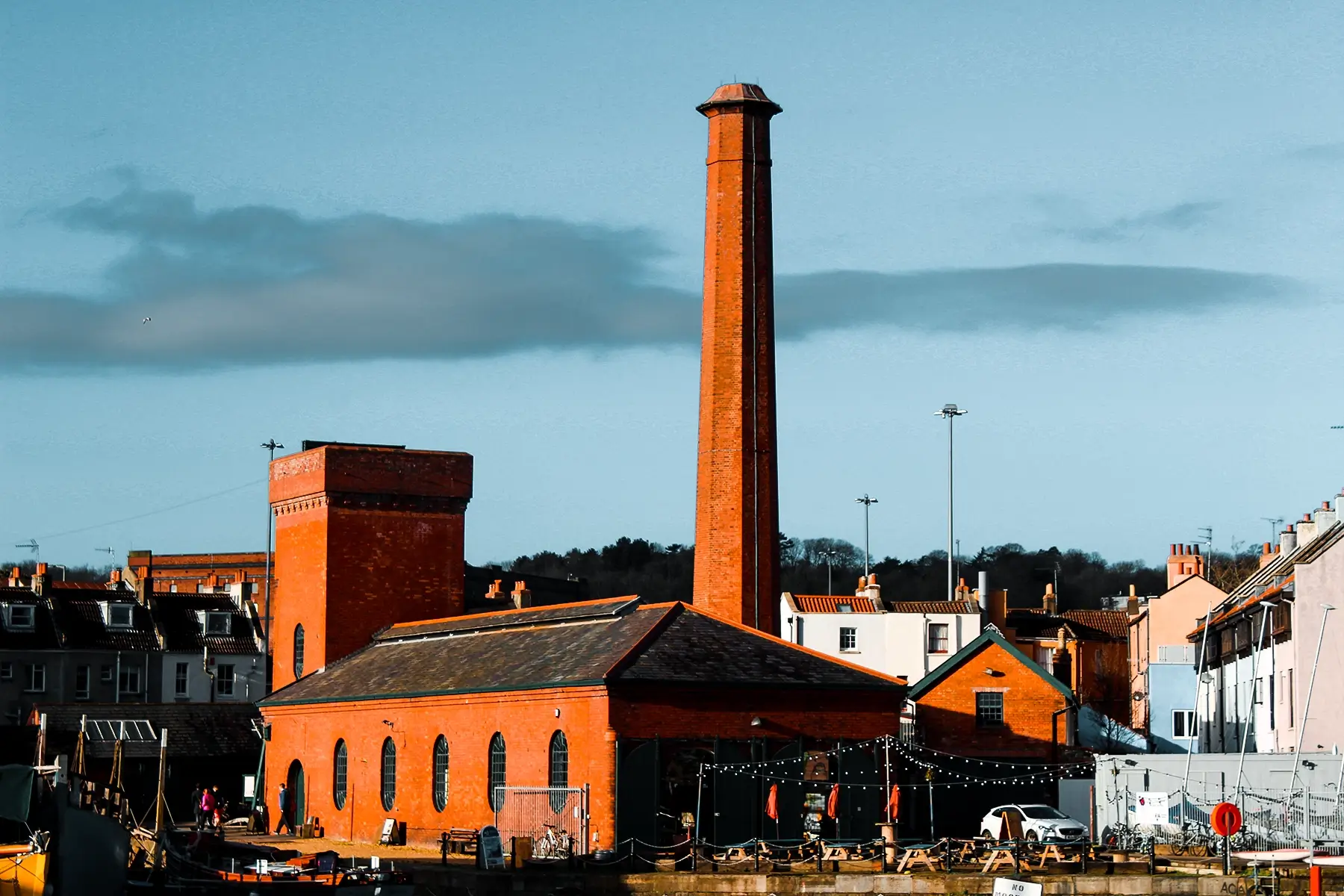In May 2023, a devastating fire at Bristol’s Underfall Shipyard, started by arson, destroyed a large part of the site, including a workshop and six boats. Although the yard has been restored, the incident serves as a stark reminder of the unique fire risks at large, open-air sites. It highlights the critical need to safeguard these environments, where flammable materials and heavy machinery pose a constant threat to both assets and personnel.

Ships and Shipyard Fires are still a Concern
Although the actual number of shipyard fires is not well known, according to an analysis done by the Allianz Group, fire-related losses accounted for 18% of the value of all claims in the marine industry back in 2023. It’s hard to pin down a single reason for all these incidents, however, when it comes to the infrastructure used to construct these vessels, changes can be made.
Ramtech is devoted to creating safer environments for open-air sites. The WES and REACT systems, developed by Ramtech, have already ensured the safety of many construction sites around the world. In 2024, Ramtech’s French team were even awarded the Fire Prevention Award by the French Federation of Firefighting Professions (FFMI). Because of the system’s proven reliability within the construction industry, they may prove extremely helpful to reduce the risk of fires across shipyards.
Using Wireless Technology in Boatyards
Ramtech’s WES is an advanced wireless fire and evacuation system, designed especially for demanding conditions. Innovation is at the heart of Ramtech, along with the WES system Ramtech has developed the REACT platform: a mobile and desktop application that can effectively inform project managers on the status of the whole system even when the site is left unattended. Contrary to other devices on the market, Ramtech’s WES system runs on a mesh network, in which every device is in constant communication, eliminating the need for multiple translators. Furthermore, WES devices are dust-resistant, which is paramount when installing them in environments with heavy machinery. However, what truly rounds out Ramtech’s comprehensive catalogue of fire safety devices is their Linear Heat Detectors, developed in collaboration with Thermocable.
This innovative technology has already been used in complex projects, such as the Edge Apartments facade replacement project. The apartment block consisted of two high-rise buildings 10 and 5 storeys tall. The project’s scope required extensive scaffolding and, thanks to Linear Heat Detection technology, all levels of scaffolding were fully monitored to respond effectively in case of a fire.

Credit: BlytheVarney
Challenges of Shipyard Fire Prevention
The 2023 Bristol shipyard fire was devastating. According to Will Rafferty, director of Star Yachts, the boat-building firm that had been operating in the yard since it opened in 2009: “The fire in 2023 was a big loss for the entire team, both in terms of work but also emotionally.” Wireless fire systems, such as WES paired with REACT and Linear Heat Detectors, can be highly effective in ensuring the safety of open-air shipyards. Shipyard managers face unique challenges that make fire prevention critical. Open-air yards often contain flammable materials and heavy machinery, putting workers at constant risk
Vessels, workshops, and expensive equipment are vulnerable to fire damage, which can result in significant financial loss. A single incident can halt operations for days or even weeks, disrupting production schedules and affecting revenue. At the same time, managers must ensure compliance with fire safety regulations to avoid fines or operational shutdowns, while also keeping insurance premiums manageable. By implementing wireless solutions like WES, REACT, and Linear Heat Detection, shipyards can address these risks proactively, protecting both personnel and assets while maintaining smooth, uninterrupted operations.
Whether it’s high-rise buildings or expansive shipyards, wireless technology can and should play a pivotal role in safeguarding both workers and the infrastructure they work in. The Bristol fire, while not resulting in any injury, tragically led to the loss of a workshop and six boats. However, with the prompt notifications from the REACT platform and the comprehensive coverage of the WES system, these incidents may be significantly reduced.
Search:
Search the website for more relevant content.
Share:
Do you like this content? Why not share it on your social network, or send it to someone else.